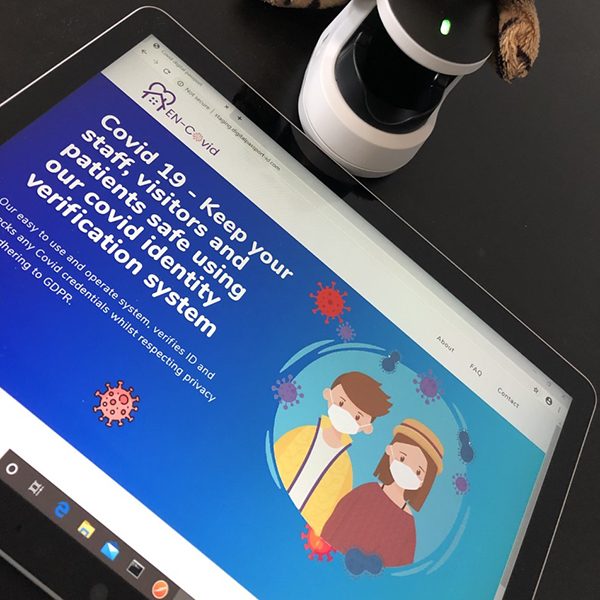Q: What is the nature of your project and what are you looking to achieve?
By July this year, 15,606 care home residents had died after contracting Covid; 50% of Covid deaths in Scotland were in care homes. At the end of September, the infection rate among young people in Manchester had risen to 745 cases per 100,000; 130 cases were recorded in student accommodation, Fallowfield Central alone. To protect high-risk groups from the Covid outbreak, we are launching an internet “check-in book” to complement the Bluetooth Track-and-Trace applications. Our locally managed contact tracing is particularly useful for organisations that manage multiple visitors, such as care homes, universities, and event organisers. It gives the management more information and control over local Covid risk exposure as it keeps a record of visits and the system helps to send alerts to relevant parties. By using Socket-IO digital signatures, we preserve privacy and avoid incidences like data overload & single-point-failure. We are not using Bluetooth technology meaning those without access to a Smartphone can still use the service.
Q: What is your background and why did you decide to focus on this idea?
Our research focuses on corporate social responsibility, in particular modern slavery, and the transparency of supply chains. Fascinated by the arrival of Blockchain and Distributed Technology which has the potential to disrupt business models, society, and government, we proposed a blockchain “communication organiser” for a decentralised cross-border, and cross-organisations coordination of anti-slavery efforts to protect the privacy of modern slavery victims. This work was interrupted by the outbreak of Covid, and, after securing an Innovate UK grant in April, we have shifted out effort to creating privacy preserving digital passports and a non-Bluetooth local contact tracing system for care homes which have suffered so badly in this pandemic.
Q: What were you hoping to get out of the SUCCESS programme at the outset?
I was at a similar training programme organised by the University of Manchester last year. I benefitted a lot with very practical training such as “How to write a press release”. So, I was very excited when I was being nominated to join this what was supposed to be a 3-day intensive boot camp. While the Covid outbreak has disrupted much of the original plan, the long period of personal coaching from a team of experts was a really uplifting experience. The SUCCESS programme enables us to reflect and keep our focus on the path towards being an independent entrepreneur.
Q: What has been the most useful part of the SUCCESS programme?
There are various parts of the SUCCESS programme that have made me grow rapidly in the last six months to become more mature as an entrepreneur. It makes me appreciate the deep divide between academia and the real world, especially in terms of communications, delivery, and strategy – the fact that the ultimate test of the 6-month training is a 3-minute pitch of our business idea to a group of real world investors says it all. I also find direct coaching from successful business leaders and coaches very valuable, and well as subject specific training, e.g. the legal and financial structure of a social venture, indispensable.
Q: What have you learned through the programme that you will bring back to your research?
The most important “take away” from the 6-month training programme is to understand the problem that we claim to help solve whether in academia or in practice. “If I were given one hour to save the planet, I would spend 59 minutes defining the problem and one minute resolving it.” – Albert Einstein. It took me half my life and several failed products to understand this.
Photo credit: Dr Ser-Huang Poon




